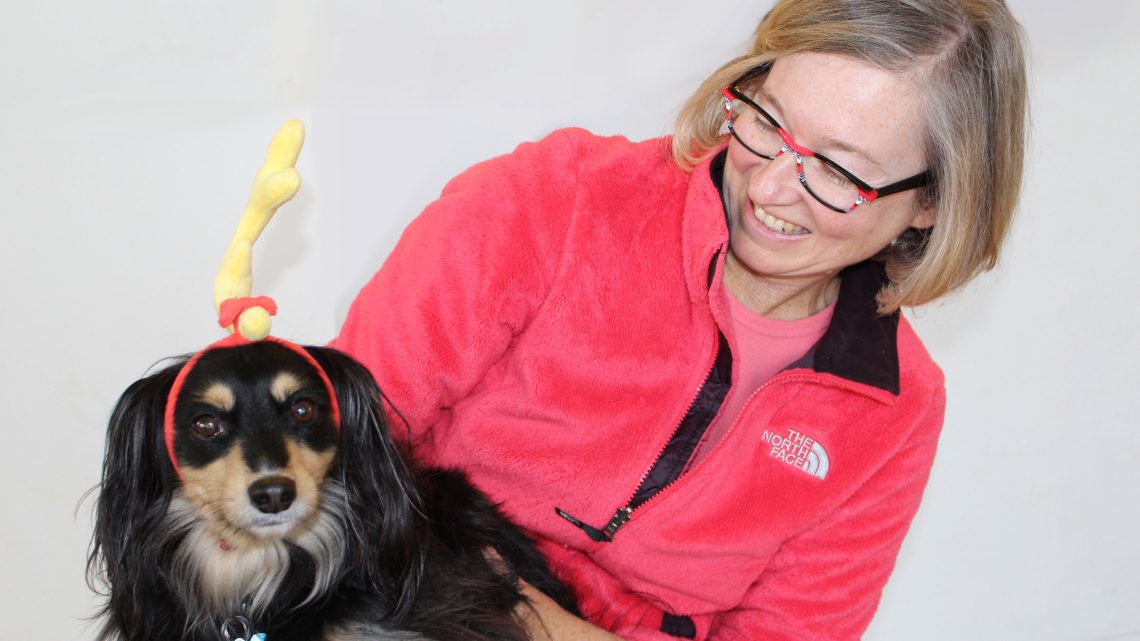He stole every morsel of food he could get, including a whole loaf of bread he swatted off the countertop and a stick of butter left on the table. He twirled in greeting when we walked in the door, even if we forgot something and came back one minute later. He photobombed our pictures with a lopsided, tonguey grin. He dashed to the piano and howled joyfully when I plunked out songs I’d learned during piano lessons with my mom.
But cancer took away his appetite, his energy, and his smile. When he stopped eating and had seizures, we took him to the vet one final time.
I sobbed when we got home that night last October. And every day for weeks. And even now months later. Somehow the loss of Davey, our rescue dog of 12 years, brought on fresh grief for my father’s strokes and death several years ago. And my mother’s dementia and fatal heart attack several years before that. And the end of my grandmother in 1993 and my grandfather in 1985.
One day I tearfully confided in a friend, “I must have a lot of unresolved grief. All of a sudden I’m mourning not only my dog but all the loved ones I’ve lost.”
“No necessarily,” she said. “The body remembers. It remembers what the grief felt like and makes those associations.”
They say resiliency is about the ability to return to the original size and shape after being stressed or moved. That’s not me, I thought. I’m a resiliency failure.
As I looked at our black piano, the shiny lid covering the keys, I told my husband, “I don’t think I’ll ever play the piano and sing again. I’ll just cry without Davey dueting beside me.” I also knew I’d hear echoes of my mom’s chord flourishes while my dad belted out the words to his favorite song, “Until Then.”
“My heart can sing when I pause to remember, a heartache here is but a stepping stone, along a trail that’s always winding upward. This troubled world is not my final home.”
In my search for resiliency, I came across 2 Cor. 4:8: “We are hard-pressed on every side, yet not crushed; we are perplexed, but not in despair.” The “yet” and “but” are the keys. We’re punched but not knocked down, hurt yet not hopeless.
Life on this earth stresses us, tears us, and leaves us with stretch marks. In my experience we don’t come through just as we were before. But our confidence in Jesus and His return is the elastic that helps us snap back, get up, and sing alone.
Until then.
Lori Peckham teaches communication and English courses at Union College. She has served as editor of Insight and Women of Spirit magazines and the “Guide’s Greatest” book series, as well as written for numerous publications.








